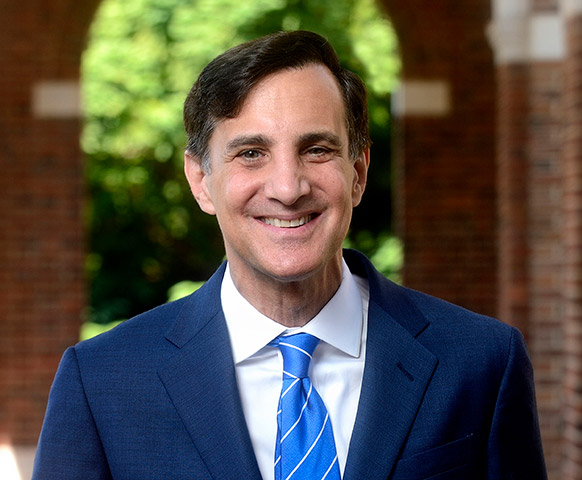
Image caption:
Ronald J. Daniels
President
"You know, you women have managed to shake this campus up."
Fifty years ago, my predecessor Steven Muller said this to Mindy Farber, A&S '74, in his (now my) office, recognizing the trailblazing spirit of the first full class of women undergraduates in the nearly 100 years since Johns Hopkins' founding.
This past Alumni Weekend, we celebrated the legacy of these women who ushered in a long-overdue tradition of undergraduate coeducation here at Hopkins. This, despite our medical school admitting women since its founding in 1893.
Any objective commentator then (or even today) would regard their admission into the Class of 1974 as a major milestone in and of itself. Their presence and participation in lecture halls and seminar rooms—once bastions of male-only privilege—represented an important contribution to the national movement for gender and racial equality.
But for this group of women, applying, being admitted, and joining the student body would be just the start of their efforts to usher our university into a new era. In the words of Cynthia Young, A&S '74, '75 (MA), at the Class of 1974 Commencement, they were "instruments of change."
They insisted on dedicated bathrooms for women instead of hastily converted men's restrooms with urinals still standing and mirrors 6 feet tall. They successfully advocated to overturn outdated policies like the need for chaperones to use the gym. They organized our first women's sports team—our soccer squad (which went undefeated en route to the team's first-ever NCAA Division III championship in 2022). They lobbied for greater gender diversity in the faculty, setting off a series of reforms and practices that have helped ensure nearly 40% of Krieger School of Arts and Sciences' professors are women. And we know that we must, and will, continue to sustain the efforts they launched 50 years ago to achieve gender parity in our professoriate.
Unsurprisingly, the women of the Class of 1974 were also instruments of change beyond their time here. They went on to shatter one barrier after another—at the forefront of civil rights battles, at the helm of national nonprofits, and in leadership posts across academia.
Through their courage and their persistence, they paved the way for ensuing generations of women at Hopkins to reach extraordinary heights. Today, 3,000 women are undergraduates. More than 50% of entering first-year students at the Krieger School are women—and in 2023, for the first time, the same was true for the Whiting School of Engineering.
This reality only came to be through the efforts of that first full class of undergraduate women. Steve Muller knew exactly what they were capable of and the impact they would have at Johns Hopkins and in our world. That impact reverberates today and will endure for the next 50 years and beyond.

Ronald J. Daniels
President







